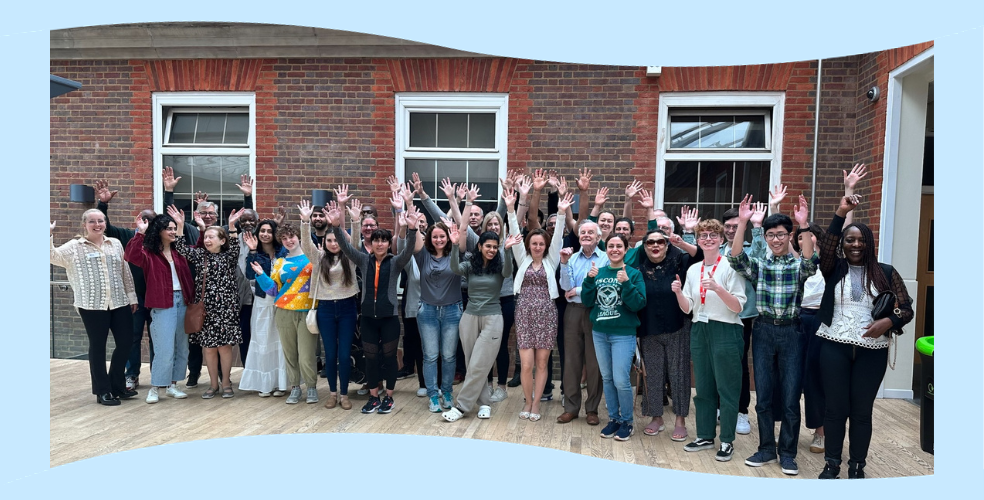The United Kingdom's journey toward achieving net zero has been a big topic of discussion. Whether it's changing climate policies or debates surrounding Ultra Low Emission Zones (ULEZ), environmental objectives have taken centre stage in the media.
At the same time, a general election is fast approaching. This means political parties are being even more scrutinised about their climate agendas.
These policies are important and need to be interrogated by the media and public alike. But focussing on national initiatives often alone means their implementation at a local level gets overlooked. This likely stems from the fact that discussing climate projects and the technologies needed to put them in place locally lacks the glamour of grand promises made by central government.
But we shouldn’t be ignoring the fact that local implementation is key to propelling the UK toward its net zero goals. Central government often develops environmental initiatives then delegates them to councils for execution, with many already having to deal with their own set of challenges, such as financial pressures. Against this backdrop, environmental objectives and their execution often take a backseat. To drive change at the grassroots level, councils need targeted support from the government.
Directing government support to local environmental initiatives
The government has an important role to play in helping local authorities turn climate policy into action. To do this, central government must revamp its approach to how councils access funding. Financial support for local authorities usually comes in the form of grants. These are often fragmented and complex for local authorities to access as each fund has a different application process.
We need to reinvent the grant system if we want to give councils the funding to implement climate policy. Government needs to standardise and simplify the application process, making the process replicable. This would save councils huge amounts of time, money and resources.
Additionally, there must be efforts made to get councils to collaborate. Working in isolation is not only inefficient but also prevents councils from learning from one another's successful projects. The government should be bringing councils together, creating spaces where they can meet, share successes and learn from one another. This will help create a more joined up approach and ensure every council has the tools to succeed.
Mobilising communities: Grassroots empowerment for net zero
Addressing the climate crisis requires a collective effort that transcends individual actions. Governments, businesses, and citizens all have an important role to play.
Grassroots efforts are important, but it is difficult for them to make a large impact by themselves. Central and local authorities must improve their support for communities taking the lead in action. They need to be showing communities their voices matter and their input will not only benefit the climate but also enhance their local environments and quality of life.
An example of the successes of this approach can be seen in our work with Barnet Council. The local authority declared a climate emergency and committed to becoming a NetZero council by 2030. To help fulfil this commitment, we supported the Council to organise a Citizens' Assembly, which ran from February 2023 to June 2023. The assembly brought together residents and young people who represented a range of perspectives.
Participants attended workshops to learn about climate change, discuss local issues, and develop practical solutions. From this, the assembly produced a comprehensive report with its vision and recommendations. The report and its recommendations were then presented to elected representatives in June. The council is now bringing the wider community together to discuss how they can act upon the recommendations. At the same time, ongoing engagement, including activities such as public events, community gatherings, and commissioned murals, will ensure continued involvement and progress monitoring.
Barnet Council aligned its goals with what residents consider to be the priorities for action to address sustainability in the borough. Through this, it fostered trust, community involvement, and people-driven climate action.
Clearing the path to local climate leadership
It's time for a fundamental shift in how local authorities and communities engage in environmental action. Working with experts and developing green technologies on a national level has been instrumental in shaping the UK's environmental agenda. But the emphasis must now shift to local implementation.
This transformation needs to include redesigning the UK's grant structure and empowering people-driven climate action. Collectively, these measures will allow us to emerge as an international leader in the global fight against climate change.

Putting citizens’ assemblies at the heart of climate action
Discover how we worked with Barnet Council to empower its community to tackle the climate emergency
Read moreOur recent insights
Transformation is for everyone. We love sharing our thoughts, approaches, learning and research all gained from the work we do.

Rethinking devolution for a stronger future
What needs to change to ensure devolution creates a more equal future for communities
Read more
How we can transform local authorities for long-term success
What councils can do now to help address financial challenges now and in the future.
Read more
Empowering communities: the impact of citizens' assemblies
We spoke to Ellen Jennings, Senior Workstream Coordinator at Barnet Council’s Sustainability Team, about the importance of citizens' assemblies in helping to address the climate emergency.
Read more

